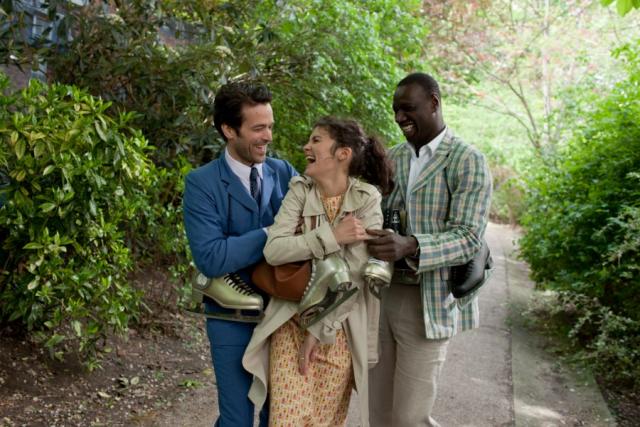
Michel Gondry has always been one of my favourite directors. His ability to take dreamlike concepts and turn them into something visually tangible has always been his strength, and a unifying quality between all his productions – be they feature length, short or music video format. Though perhaps we won’t consider The Green Hornet in amongst this discussion.
His trends lean towards the absurd, yet are cemented in reality. You’re unlikely to see any CGI in a Gondry film, yet you’ll be dazzled with more effects, inspired by a combination of stop motion photography and some techniques made famous by the earliest of the silent films, than you’re likely to see in a Hollywood blockbuster. And with Mood Indigo, Gondry has pulled out all the stops. He’s taken a story (based on the French novel L’Écume des Jours, or Froth on the Daydream) which lends itself to the theatre of the absurd, almost Dada-esque, and used every trick in his book. The ultimate result is a surprisingly emotionally engaging story, indeed cemented in reality, but existing in a world where nothing is as it seems; a “world gone mad” perhaps, but more likely than anything, it’s the world that Michael Gondry sees in his dreams, and has once again made a reality.
English speaking audiences will perhaps best know Gondry from his music video work – in particular clips like Supergrass’ “Pumping on Your Stereo” and the infamous “Everlong” by the Foo Fighters – as well as the successful feature Eternal Sunshine in the Spotless Mind. In Mood Indigo, which has been produced for a French audience, it immediately becomes clear that in a production like Eternal Sunshine, Gondry was holding back his visual desires; and that’s certainly a visually stimulating masterpiece if there ever was one.
This time around, he’s said “let’s do everything I can possibly think of”, which includes revisiting some of his old tricks, like the long legs of the Supergrass film clip, or the use of projections within a shot, as in Sunshine. Though the stop motion photography at times reminded me of The Life Aquatic, another example of visually stimulating cinema, albeit from American director Wes Anderson (another of my favourites). From start to finish, as the gradient of the shot fades from colour to darkness, and the vibrancy of life is replaced by dull melancholy, you can’t look away.
Leads Colin (Romain Duris) and Chloe (Audrey Tatou) give phenomenal performances, holding the film together in all it’s absurdity. Gondry himself also plays a minor, but important role in the film, and a special mention must be made to The Intouchables Omar Sy (Nicholas), who manages to steal most of the scenes, while rounding out a phenomenal cast that also includes Alain Chabat, Gad Elmaleh and the beautiful Aïssa Maïga.
Though I haven’t seen the book’s other two filmic interpretations, nor read the original, it would be of fair assumption that the Gondry version of L’Écume des Jours is as much his own as that of the original author, Boris Vian. The story is very much Vian’s, but the vision is pure Gondry. As for the idea that a philosopher can be a rockstar? Well, that’s probably more Vian than Gondry. Gondry knows more than enough rockstars of his own to keep that part of his brain satisfied.
When you have the ability to make something absurd accessible, you know your powers as a director are quite pronounced. Though in his latest film Gondry walks a fine line, certainly more daring than any of his films I’ve experienced in the past, Mood Indigo ultimately sits as a success of the genre. A film simultaneously bizarre and beautiful that may leave some scratching their heads, though through the unique production design and effects – which are Gondry through and through – along with performances that cement the absurdity in some degree of realism (that idea that if they believe it, you should too), it’s impossible not to have a good time – nor be stimulated in one form or another – along the way. It won’t topple Eternal Sunshine as my favourite Gondry film (also one of my favourite films full stop), but Mood Indigo comes pretty close.
Review Score: FOUR STARS (OUT OF FIVE)
Duration: 130 Minutes
Mood Indigo screened as part of the Sydney Film Festival. It will be released in Australian cinemas later this year, though at the time of posting no Australian distributor has been confirmed.
